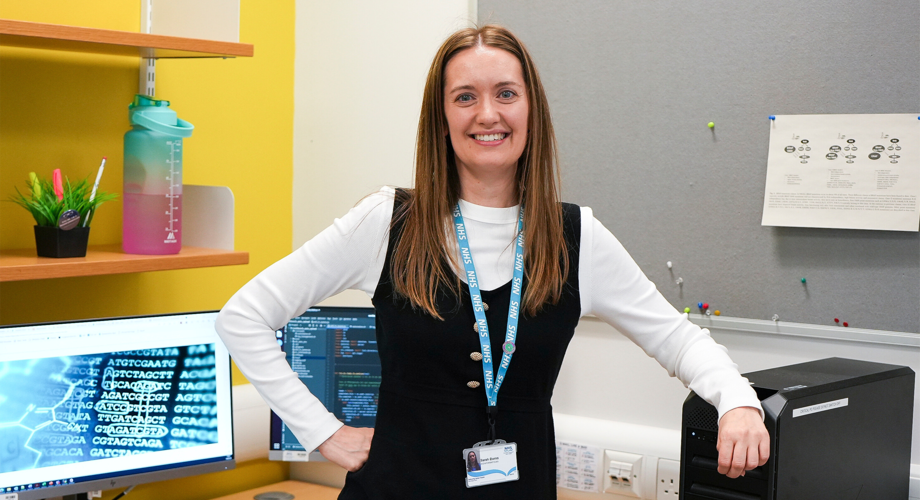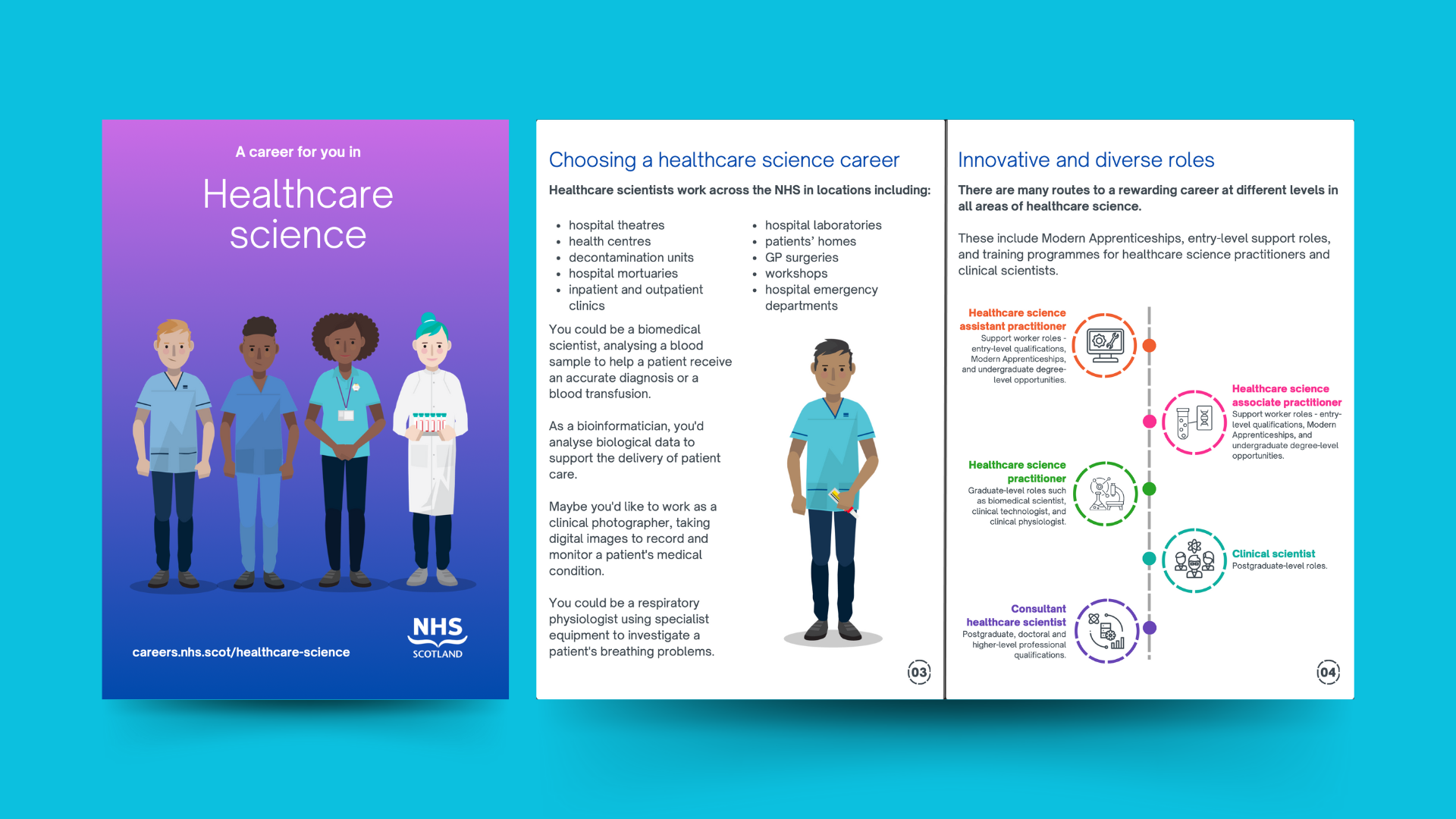
NHSScotland Careers
14 March 2024
•4 min read

Who is Sarah?
Sarah is a clinical bioinformatician who specialises in genomics. Before becoming a bioinformatician, Sarah had never considered it as a career option.
She describes her career path as: “[making] a series of decisions in the direction that interested me the most, and this is where I ended up.” Sarah’s role allows her to perfectly balance her passion for genetics with her love for problem solving.
What does a bioinformatician’s day look like?
As with many roles in the NHS, no 2 days are the same. Sarah can spend one day writing a new code to analyse data, and the next day, she could be participating in national meetings to share her expertise.
Sarah’s favourite part of her day is seeing the impact her work has created. “The software I develop […] helps other scientists and ultimately the patients. It’s a great feeling when something works really well.”
A skilled communicator
Communication is a vital skill for an aspiring bioinformatician. Verbal, written and visual communication skills are all equally important.
Sarah explains: “Many people find it tricky getting their head around bioinformatics concepts, how software works and big data formats. It’s my job to help people understand their data, how I can help them with their analysis, and present their data to them in an informative manner.”
Sarah also says it is important to be adaptable and flexible to the needs of colleagues and the service.
Sarah’s advice for pursuing a career in bioinformatics
After Sarah had completed a biology degree with a specialism in genetics, she was unsure which career to pursue. Sarah knew that she was interested in the clinical side of her field, so she did a master’s degree in medical genetics.
Sarah was then offered a place on the Clinical Bioinformatics stream of the Scientist Training Programme (STP) in Birmingham. It culminated in registration with the Health and Care Professions Council (HCPC) as a clinical scientist.
Sarah left the NHS 3 years after qualifying to focus on her software development skills. She returned soon after, becoming the first NHS bioinformatician in her field in Scotland.
Sarah says: “This has been both exciting and daunting, but I’m proud to be a bioinformatician in the NHS” Through her work, Sarah continues to raise awareness of her role. She hopes to be part of the growing team in the future.
Most importantly, Sarah advises: “I would encourage you not to worry about the technical skills, as these can be learned. A good attitude and desire to learn are far more important.”

A career for you in healthcare science
Ready to discover some of the healthcare science careers you can choose in the NHS? Check out our new career guide!